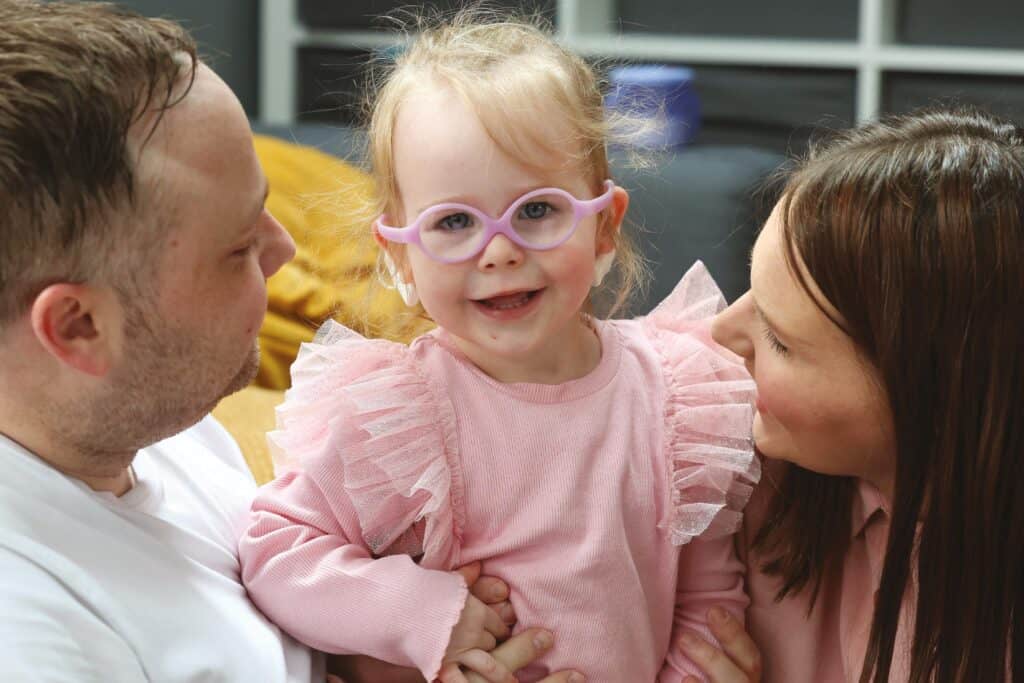
Tilly is two years old and was born profoundly deaf. Recently she underwent surgery for a cochlear implant.
Her father, Christopher, shares what risks the family took in opting for the implant, and how it has gifted Tilly the joy of sound.
Seeing the signs: born with profound hearing loss
“Tilly was a very happy surprise, making us a family of five. She came into our world by a planned c-section with a shock of dark hair that set her apart from her brother, Toby, and sister, Maddy.
During her newborn hearing screening the nurse couldn’t get any results. We were told this could be caused by fluid in the ears and wasn’t a concern, but that we would be invited to an appointment for a follow up test.
When we came home with Tilly, we began to notice that she didn’t startle at loud noises. At first, I hoped that she was just very settled, but with two other young excitable and noisy children in the house, deep down I knew something was different about her.
When we found out that she had been born with profound hearing loss, I was devastated. I had no idea how this would change our lives. I won’t lie to you, the uncertainty was really scary. We were told that hearing aids wouldn’t help Tilly to hear, but a cochlear implant might.
The benefits and risks of a cochlear implant
The difference a cochlear implant has made to Tilly’s life is incredible. She’s vocal, she loves dancing to music and she’s very outgoing. It’s changed her life and ours, more than we could have ever imagined.
But not everyone is as lucky. Families are warned of the risks involved with the procedure and face uncertainty about the outcome. Manual surgical insertions of an implant into the cochlea can cause trauma to the tissue, often destroying any remaining natural hearing the person has.
When surgery is successful, most people find the implants work well for understanding speech in quiet places. However, it remains difficult for people with cochlear implants to understand speech in noisy places, such as a restaurant or classroom. These difficulties often lead them to withdraw from social situations, which can have a negative impact on their mental health.
Improving cochlear implant technology for the next generation

There is still more to do to improve the experience of wearing a cochlear implant. RNID funded the scientists that helped develop the first cochlear implant in the UK and continues to fund their improvement. This research seeks to reduce the risks associated with surgery, so more people can benefit from this life-changing technology.
When we found out about Tilly’s hearing loss, it felt like my world had turned upside down. But now, I wouldn’t change it. She has taught us so much, and we’ve become part of a community that, before, we were quite clueless about.
As a parent of a deaf child, I find it shocking that the equivalent of only £1 per person affected by hearing loss is spent on research, compared with £16 per person for sight loss. When you consider how hearing loss affects 18 million people in the UK, something isn’t adding up. With your generous support, more children like Tilly can experience the joy of sound.”
